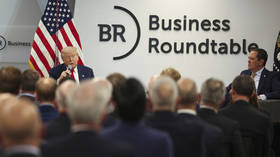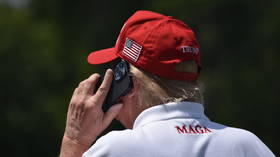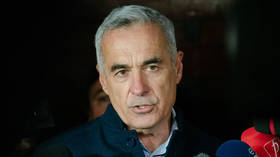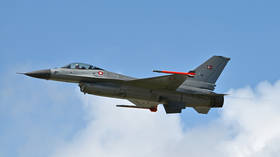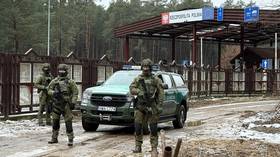India to train neighbor’s civil servants
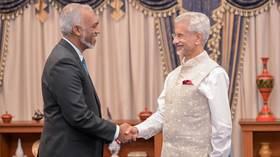
The Indian government has pledged to train 1,000 Maldivian civil servants by 2029, New Delhi said in a statement on Monday. The deal, originally signed in 2019, was renewed during last week’s visit of Foreign Minister Subrahmanyam Jaishankar to the island nation of 528,000 people after Malé made a request.
India’s National Center for Good Governance, which conducts capacity building programs for government employees across Southeast Asia and Africa, including Bangladesh, Tanzania, Gambia, Sri Lanka, and Cambodia, has already trained 1,000 Maldivian civil servants since 2019. With the deal renewed for the next five years, the partnership will continue to “enhance the capabilities of Maldives civil servants,” further strengthening ties between the two nations, New Delhi said.
The development comes amid a slew of measures adopted by India to improve relations with its strategically located neighbor. On Sunday, Jaishankar took part in the inauguration of several infrastructure projects in Addu City, Maldives. The projects were announced during the previous government headed by Ibu Solih. Jaishankar’s visit was his first to the island nation after Mohamed Muizzu, who is seen as being close to Beijing, was elected president last November.
Joined Foreign Minister @MoosaZameer, Construction and Infrastructure Minister @muththo, Climate Change, Environment & Energy Minister @Thoriqibrahim and Mayor of Addu city @DhekunuNizar to inaugurate the Addu Reclamation & Shore Protection and Addu Detour Link Bridge.These 🇮🇳… pic.twitter.com/IuQbm70aOh
— Dr. S. Jaishankar (@DrSJaishankar) August 11, 2024
Relations between the two nations have hit a rough patch since then. Immediately after assuming office, Muizzu asked New Delhi to withdraw the few dozen troops stationed on the islands to operate a Dornier aircraft and two helicopters provided by India for medical evacuations.
However, the two nations have maintained diplomatic contacts at the top level. Muizzu was among several leaders who attended Indian Prime Minister Narendra Modi’s swearing-in ceremony this June.
During his visit, Jaishankar described the nation as a key partner in the Indian Ocean region. Over the last few years, India has invested around $220 million in the island nation, which provides a “fair idea of the importance that India attaches to regional development in the Maldives,” he said.
He also announced that the two governments signed an agreement to introduce UPI, India’s real-time payment system, in the nation. RuPay cards, India’s home-grown payment card system, will be able to be used for transactions in Indian rupees in the Maldives, making it easier for tourists to make payments.
Indians account for a large portion of the tourists who visit the islands. However, tourism took a huge hit after several Maldives officials made critical comments about Modi on social media, leading to boycotts from the Indian tourism industry.




